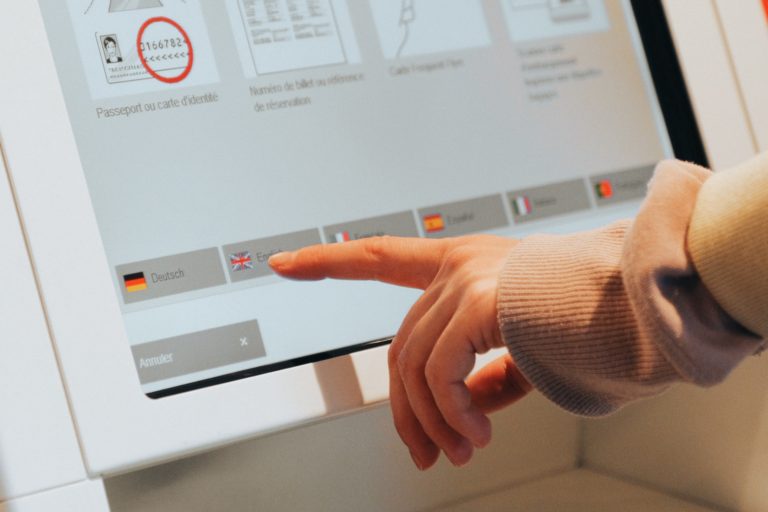Self-service options have been all-the-rage for many years now, with one of its earliest manifestations appearing in the form of pay-at-the-pump gas stations. According to PetroleumServiceCompany.com, “In 1973, a station in Abilene, Texas, invented pay-at-the-pump. By 1994, about thirteen percent of convenience stores offered pay-at-the-pump. Less than a decade later in 2002, the percentage of convenience stores with pay-at-the-pump jumped to 80 percent.” Aside from states like New Jersey and Oregon, where fuel attendants are mandatory, nearly all pumps nationwide are now completely self-serve.
But self-service is everywhere these days, not just at gas stations. We’ve all been bussing our own tables at a fast-food restaurant for decades, and now many of us are placing our orders using touchscreen kiosks or phone apps. This completely limits our human interaction to just the moment an employee passes us our purchases over the counter or through a window.
As with all things revolving around technology, it’s great when it works. But for more complex needs, like problem resolution, automation and self-service often prove a frustrating series of hoops to jump through. We’ve all experienced the nuisance of dealing with Interaction Voice Response (IVR) systems, the ones that use pre-recorded messages that ask you to speak in natural language to help it answer your questions. How often have we desperately pleaded with these things to just send us to a representative so we can explain our concerns to a human? It’s no surprise, then, that Harvey Mackay Academy has found that “Eighty percent prefer customer service from a human being instead of an automated system.” That’s not just a majority—that’s a supermajority! After all, no matter how much you try to explain your problem to an IVR, it’ll never empathize with you.
Customer service is truly a broad set of principles, and one of the factors it entails is convenience. Oftentimes, self-service presents a greater level of convenience for businesses like gas stations and fast food, where there’s an expectation of speed at the expense of personal interaction. There are even consumers who prefer the option of self-service in businesses that traditionally used cashiers, like at grocery stores. Many of those businesses now employ self-checkout lanes, which are lower cost for them, and can be faster than waiting in life for a checker. (Sometimes…)
Of course, not everyone wants to see commerce become completely automated or self-served, as is indicated by that Harvey Mackay stat from above. Offering great customer service at the human level is key to serving the large percentage of people who still prefer business done that way. It’s even a huge boon to those who do prefer self-service, as having a human being on standby and ready to assist when the technology breaks down saves a lot of hassle.
Want another stat? “In 2019, 61 percent of millennial customers win the United States stated that they would be willing to pay more for quality customer service,” according to Statista. Even if that number were significantly smaller, it’s a fair bet that discerning customers who are willing to pay more for quality are also more likely to be loyal to that quality. That’s a demographic any business should pursue. Perhaps that number is startling, as we often associate millennials with being antisocial and in love with automation. Again, those options are great when they work—but offering a human touch not only mitigates technical problems but also personalizes the experience. That’s the best way to stand out from the crowd and broaden your consumer base.
Have you considered ways to balance out both self-service and personal service at your business? How confident are you that your customers are satisfied with your sales and customer service processes? Are there areas that could be improved? Policies that could be implemented or expanded to really improve your customers’ overall experience? If you’d like to find out the answers to these questions and more, drop us a line at The Brandt Group. Our customer-service consultancy has been around for nearly 30 years, and in that time we’ve aided countless businesses in their endeavor to earn stronger customer loyalty, generate better profits, and offer a more memorable experience overall. It’s your business’s turn. Let’s get started today!




Recent Comments